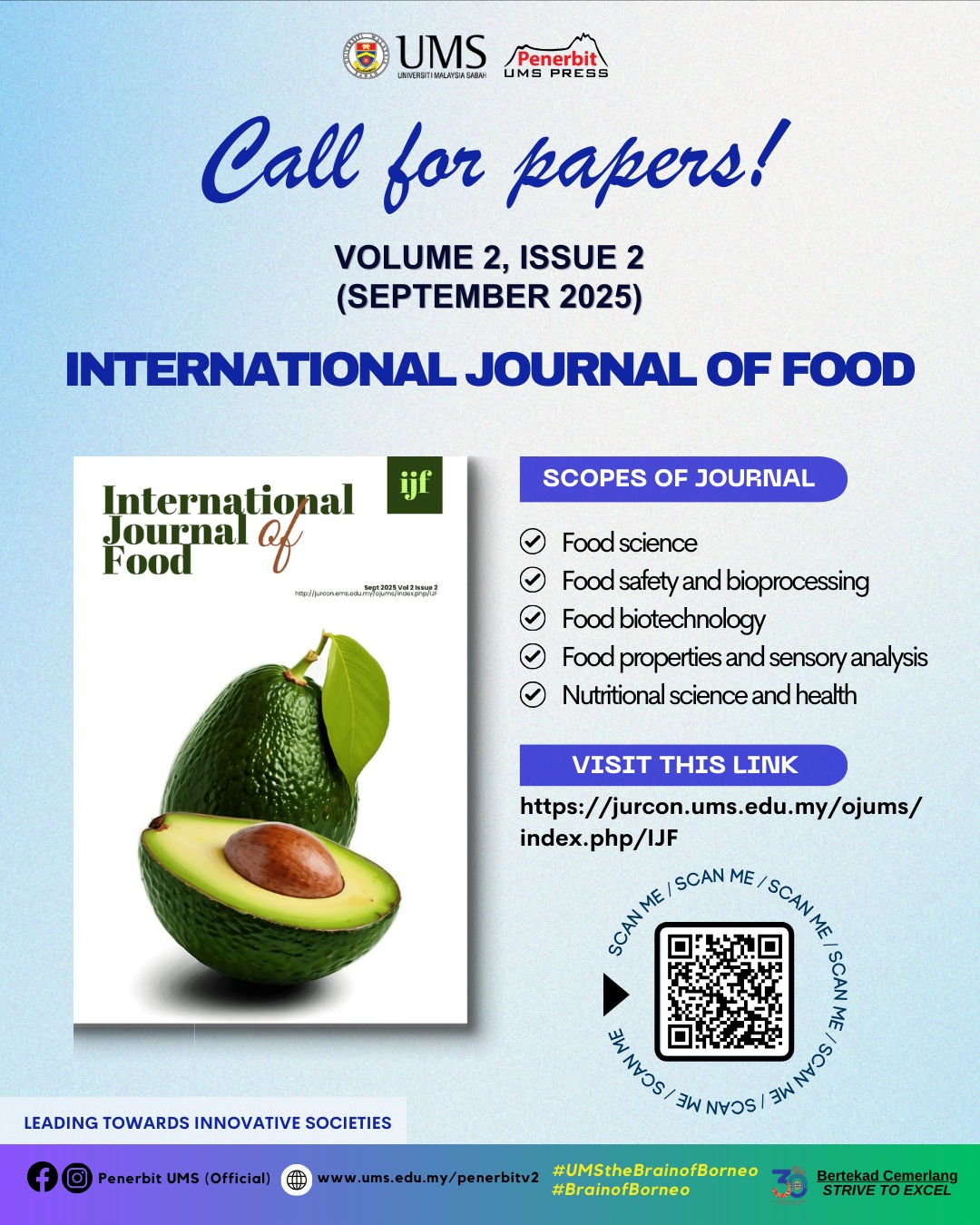Elucidation of Stilbene-Derivatives as Potential Inhibitors of SARS-CoV-2 Mpro Binding Pocket: A Molecular Docking, and ADMET Prediction Studies
DOI:
https://doi.org/10.51200/ijf.v1i1.4898Keywords:
berries, COVID-19, molecular docking, SARS-CoV-2 Mpro, StilbeneAbstract
Berries are well-known not only for their flavour and nutritional content but also for the potential health effects of their bioactive components. Stilbenes, a class of phenolic compounds found in berries, have essential pharmacological activities in many biological pathways. The COVID-19 pandemic had put many countries in the world in a state of chaos. Although the prevalence of COVID-19 seems to have subsided, the search for the remedy to overcome this pathogen is still ongoing. Plant-derived substances have well been recorded to display potent effects including antiviral activity. Hence, the aim of this study is to determine the potential of stilbene derivatives to act as antiviral agents against COVID-19. In silico molecular docking method was employed to elucidate the structural interaction of eleven stilbene derivatives to SARS-CoV-2 Mpro binding pocket using CB-Dock2 server, followed by drug-likeness and ADMET prediction analysis. Based on the docking score and ligand-receptor interactions, rhaponticin and polydatin had the best vina docking scores for the SARS-CoV-2 Mpro pocket with -8.1 kcal/mol and -8.0 kcal/mol respectively. These scores were found to be lower than controls, remdesivir (-7.8 kcal/mol) and inhibitor N3 (-7.9 kcal/mol), indicating its high affinity towards the binding target. In conclusion, the study identified that rhaponticin and polydatin might serve as potential lead compounds for developing new SARS-CoV-2 drugs. However, these results need to be validated by in vitro and in vivo experimental studies before these compounds can be considered for further development as antiviral agents.










